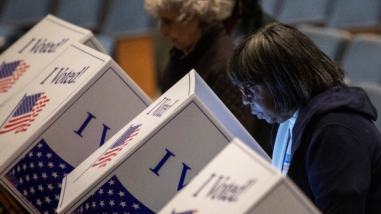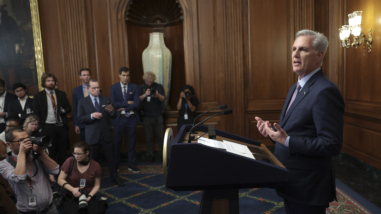Massachusetts Institute of Technology
For General Support Of The Abdul Latif Jameel Poverty Action Lab At MIT
-
Amount$1,000,000
-
Program
-
Date Awarded7/20/2011
-
Term36.0 Months
-
Type of SupportGeneral Support/Program
Overview
The Abdul Latif Jameel Poverty Action Lab (J-PAL) at the Massachusetts Institute of Technology is dedicated to fighting global poverty by ensuring that policy decisions are based on scientific evidence. To broaden and deepen the evidence base, J-PAL trains evaluators and policymakers in the design and use of randomized evaluations, and conducts outreach to encourage the expansion and replication of effective programs. Recognized as the premier institution in this field, and having established five affiliate offices around the world, including the Hewlett-supported branch in South Africa, J-PAL is well on its way to improving the lives of over 100 million people across the globe.
About the Grantee
Grantee Website
www.mit.edu
Grants to this Grantee
for CEEPR’s Industrial Strategy Economic Monitor
A team at MIT, in collaboration with researchers at Stanford and Employ America, is developing the Industrial Strategy Economic Monitor to assess progress implementing U.S. industrial strategy. The monitor will feature a data tool enabling users to easily visualize and download data — including on employment, input costs, investment, output, and trade — and a dashboard summarizing data by industry and production stage. It will facilitate close-to-real-time assessment of tailwinds and headwinds for targeted industries and the broader macroeconomy, spur debate and research on the best way to evaluate industrial strategies, and promote high-quality, nonpartisan analysis of the industrial strategy experiment.
for support of the AI + Open Education Initiative
MIT Open Learning transforms education at MIT and around the globe through innovative digital technologies. With this grant, MIT Open Learning will solicit rapid response papers and multimedia projects from stakeholders in the United States and internationally to articulate how generative AI might accelerate (or hinder) the promise of open education to offer engaging learning experiences. This work will draw upon MIT’s connections with trailblazers who are shaping AI and open education, and it will inform approaches for developing effective teaching practices and bolstering an inclusive open education field responsive to diverse stakeholders. (Substrategy: Field Building)
for support of the Election Data and Science Lab
The MIT Election Data and Science Lab advances and disseminates scientific knowledge about the conduct of elections, primarily in the United States but with attention to the rest of the world. By addressing the multiple audiences of academic researchers, the general public, and practitioners, it serves a unique role among individuals and institutions dedicated to improving the conduct of American elections, and it supports a growing network of election science research centers across the U.S.



